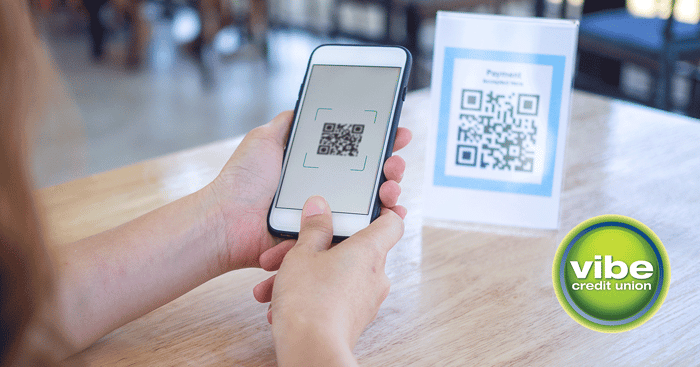When you think of money and managing it, you likely think of your saving, spending, and even investing. One of the most important things about managing money is keeping it safe and avoiding fraud.
According to the Federal Trade Commission, from 2020 to 2021, fraud reports are up 70%. We don't want you to be a part of that statistic! Here are Vibe's best tips for avoiding fraud.
Do not open or answer suspicious communication
As a rule of thumb, if you receive an unexpected call, text, or email that you weren't expecting or do not know the sender, assume it's suspicious until proven otherwise. Any time you answer communications or click a link provided within the communication, you make yourself vulnerable to fraudulent activity. So, don't click and don't answer!
Practice safe use of the internet
Fraudsters love to scour the internet and take advantage of you any chance they get! So, it's best to practice safe use of the internet.
Shop from trusted sources
If you're doing some online shopping, make sure that you're purchasing from reputable, secure sites. A good way to know if the site is secure or not is if the URL starts with https:// rather than http://. The "s" indicates whether the site is secure or not.
Don't store personal information within your browser
When you shop online and enter your credit card information or address, your browser may prompt you to save your information to make checkout faster next time. Steer clear of that!
If you choose to let your browser save your information and your device gets hacked, you have given fraudsters the green light to steal your personal information and even rack up a credit card balance.
Be mindful of what you download
As you peruse the web to read and learn, you may be tempted to download files to continue reading. Be careful! Is the file coming from a trustworthy source? Viruses and computer-hacking tools are often hidden within what seems like an innocent download.
Know your device's privacy and security settings
Many users could have prevented instances of fraud if they knew their device's privacy and security settings. Our devices are equipped with settings and tools to keep your personal information safe and secure, not allowing it to be stored or shared with anyone else. Checking these settings and consulting them with a professional can be a step toward avoiding fraud.
Contact trusted sources for help
When you realize you've become a victim of fraud, you're likely trying to find help immediately to rectify the issue and ensure it doesn't happen again. Contacting your financial institution is a great first step. And we're here to help!
Another great option would be to contact a local police station, lawyer, or accountant. They likely see fraudulent activity quite often and know what to do moving forward.
If there's anything we can learn from fraudsters, it's that you can never be too safe with your personal information. With these tips, we hope you stay safe and alert before becoming a victim of fraud.







